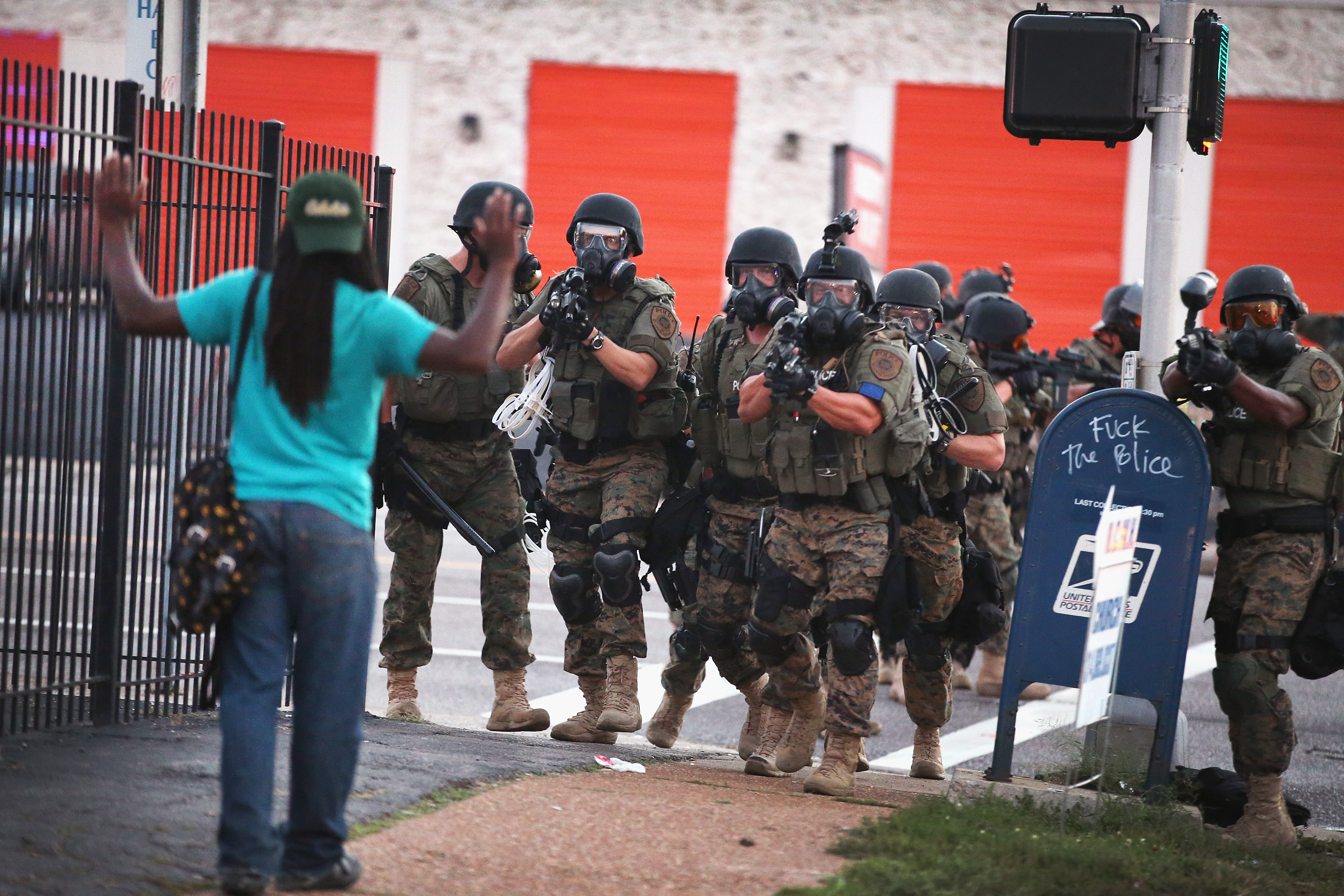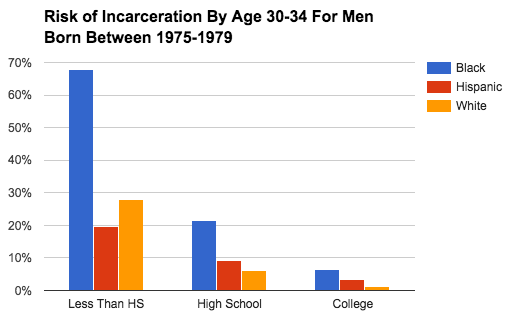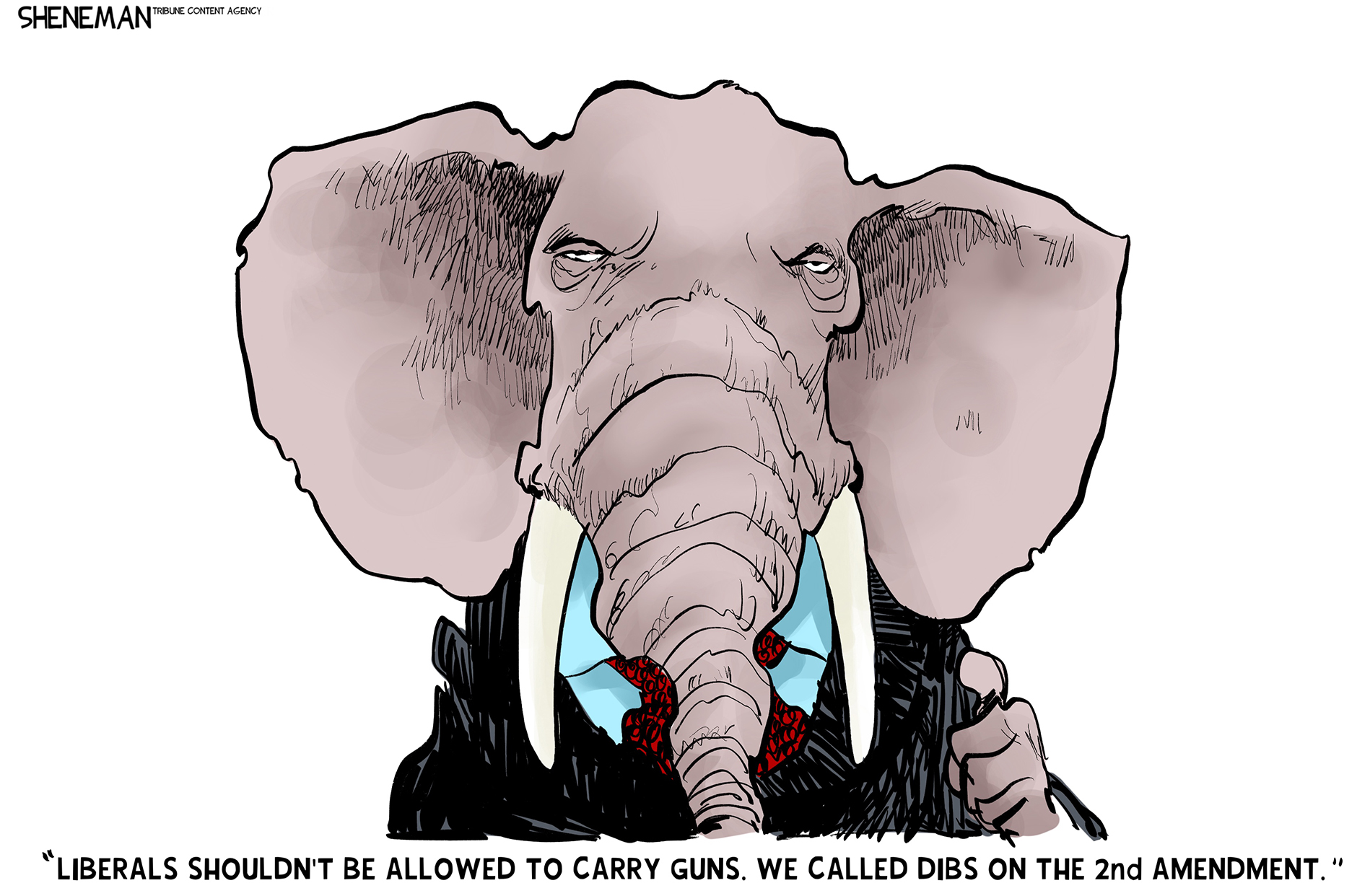Can jobs stop police violence? You bet.
Many liberals say only race-based solutions can end police violence. They're wrong.


In the primary contest between Hillary Clinton and Bernie Sanders, one consistent fault line has been over race and class — the resurfacing of an age-old dispute between liberals and socialists.
The argument is over how best to attack racism in American society, and on the surface, the two camps have fairly similar positions. While some liberals, such as Elon James White, characterize unnamed Sanders supporters as believing that "If you just wait, racism will stop as soon as we deal with economic issues," in reality both campaigns support class and race-specific policy to deal with racism. Sanders is far more aggressive on economic policy in general, but on racism their platforms are extremely similar.
However, there is still a deep ideological divide, and it has to do with one's view of the inherent injustice of capitalism. Liberals are generally supportive of the system and believe the major strategy for attacking racism ought to be based around race-specific policy. Socialists generally agree with this, but insist that capitalism itself is a major source of injustice, arguing that universal social benefits must be a key part of any anti-racism program.
The Week
Escape your echo chamber. Get the facts behind the news, plus analysis from multiple perspectives.

Sign up for The Week's Free Newsletters
From our morning news briefing to a weekly Good News Newsletter, get the best of The Week delivered directly to your inbox.
From our morning news briefing to a weekly Good News Newsletter, get the best of The Week delivered directly to your inbox.
Because while socialists do not believe that economic policy alone can cure racism, some liberals do make the converse argument — that economic policy is no good at all for attacking racism.
This can be seen in the debate surrounding Sandra Bland, the black woman who was brutally and unjustly arrested for sassing a cop, and later apparently hanged herself in jail. The fact that Bland had a college degree and a job has become a touchstone for liberals (including White), who see her case as evidence that economic power is useless for fighting police violence.
It makes a certain superficial sense. But the argument is factually false.
First, as a matter of statistics, Bland's gruesome fate is only one instance in a country of 320 million people with a sky-high incarceration rate. One cannot generalize about the enormous jail and prison population (in jails, suicide is the leading single cause of death; in 2013, 327 people committed suicide there) from a single data point.
A free daily email with the biggest news stories of the day – and the best features from TheWeek.com
Second, while Bland did have a job and a degree, her family apparently could not immediately scrounge up the money to bail her out. Given that, as the ACLU's David Fathi told me, new arrestees are at greatest risk of suicide within the first 24-48 hours of being thrown in jail, it's conceivable that a piddling $500 in the right hands would have saved her life.
But aside from Bland, it is simply inarguable that racist oppression within the criminal justice system is heavily mediated by economic class. Consider this chart, a measurement of the risk of incarceration by educational attainment, for men born between 1975 and 1979.

Now, this is an imperfect measurement. It only includes men who end up in jail or prison, and educational attainment is not a perfect proxy for class. However, it is almost certainly in the right ballpark. High school dropouts are structurally poor, while people ending up in prison is surely a general indicator of that population's general contact with the police and courts.
Moreover, while more precise measurement might change the specific figures to some extent, the differences are so incredibly vast that it could not possibly change the overall class rankings. Yes, college-educated blacks do get disproportionately abused by the cops and courts, but blacks without a high school degree have it something like 10 times worse. This fits with the stone obvious fact that poor people are treated far worse on average, by far, by the criminal justice system.
Only 3 percent of people with a full-time, year-round job are poor. It is thus absolutely beyond question that having a job provides at least some relative protection from police violence, and probably quite a lot. It means you are less likely to live in a heavily-policed neighborhood, more likely to be able to afford bail or an attorney if you are arrested, and less likely to be victimized by crime (or commit one yourself) and thus end up in contact with the police. As Lester Spence (a black professor at Johns Hopkins) writes, "the odds that someone like me would suffer the kind of horrific death someone like Freddie Gray did is very slim."
The liberal view, so far as it can be discerned, seems to be that the way to attack racist police violence is to level outcomes across all the class groups through criminal justice reform and other such policy. The socialist view is that this should be coupled with egalitarian welfare policy to eradicate poverty and boost people out of the lower class. Indeed, the fact that low-class whites have it the second-worst among all the subgroups in the above chart (recall that 60 percent of the people killed by police in 2015 were white) suggests that criminal justice reform only focused on racism will fail to prevent a large fraction of police brutality against black people. America can do better than treating poor blacks as horribly as it does poor whites.
Ryan Cooper is a national correspondent at TheWeek.com. His work has appeared in the Washington Monthly, The New Republic, and the Washington Post.
-
 Political cartoons for January 29
Political cartoons for January 29Cartoons Thursday's political cartoons include 2nd amendment dibs, disturbing news, and AI-inflated bills
-
 The Flower Bearers: ‘a visceral depiction of violence, loss and emotional destruction’
The Flower Bearers: ‘a visceral depiction of violence, loss and emotional destruction’The Week Recommends Rachel Eliza Griffiths’ ‘open wound of a memoir’ is also a powerful ‘love story’ and a ‘portrait of sisterhood’
-
 Steal: ‘glossy’ Amazon Prime thriller starring Sophie Turner
Steal: ‘glossy’ Amazon Prime thriller starring Sophie TurnerThe Week Recommends The Game of Thrones alumna dazzles as a ‘disillusioned twentysomething’ whose life takes a dramatic turn during a financial heist
-
 The pros and cons of noncompete agreements
The pros and cons of noncompete agreementsThe Explainer The FTC wants to ban companies from binding their employees with noncompete agreements. Who would this benefit, and who would it hurt?
-
 What experts are saying about the economy's surprise contraction
What experts are saying about the economy's surprise contractionThe Explainer The sharpest opinions on the debate from around the web
-
 The death of cities was greatly exaggerated
The death of cities was greatly exaggeratedThe Explainer Why the pandemic predictions about urban flight were wrong
-
 The housing crisis is here
The housing crisis is hereThe Explainer As the pandemic takes its toll, renters face eviction even as buyers are bidding higher
-
 How to be an ally to marginalized coworkers
How to be an ally to marginalized coworkersThe Explainer Show up for your colleagues by showing that you see them and their struggles
-
 What the stock market knows
What the stock market knowsThe Explainer Publicly traded companies are going to wallop small businesses
-
 Can the government save small businesses?
Can the government save small businesses?The Explainer Many are fighting for a fair share of the coronavirus rescue package
-
 How the oil crash could turn into a much bigger economic shock
How the oil crash could turn into a much bigger economic shockThe Explainer This could be a huge problem for the entire economy
